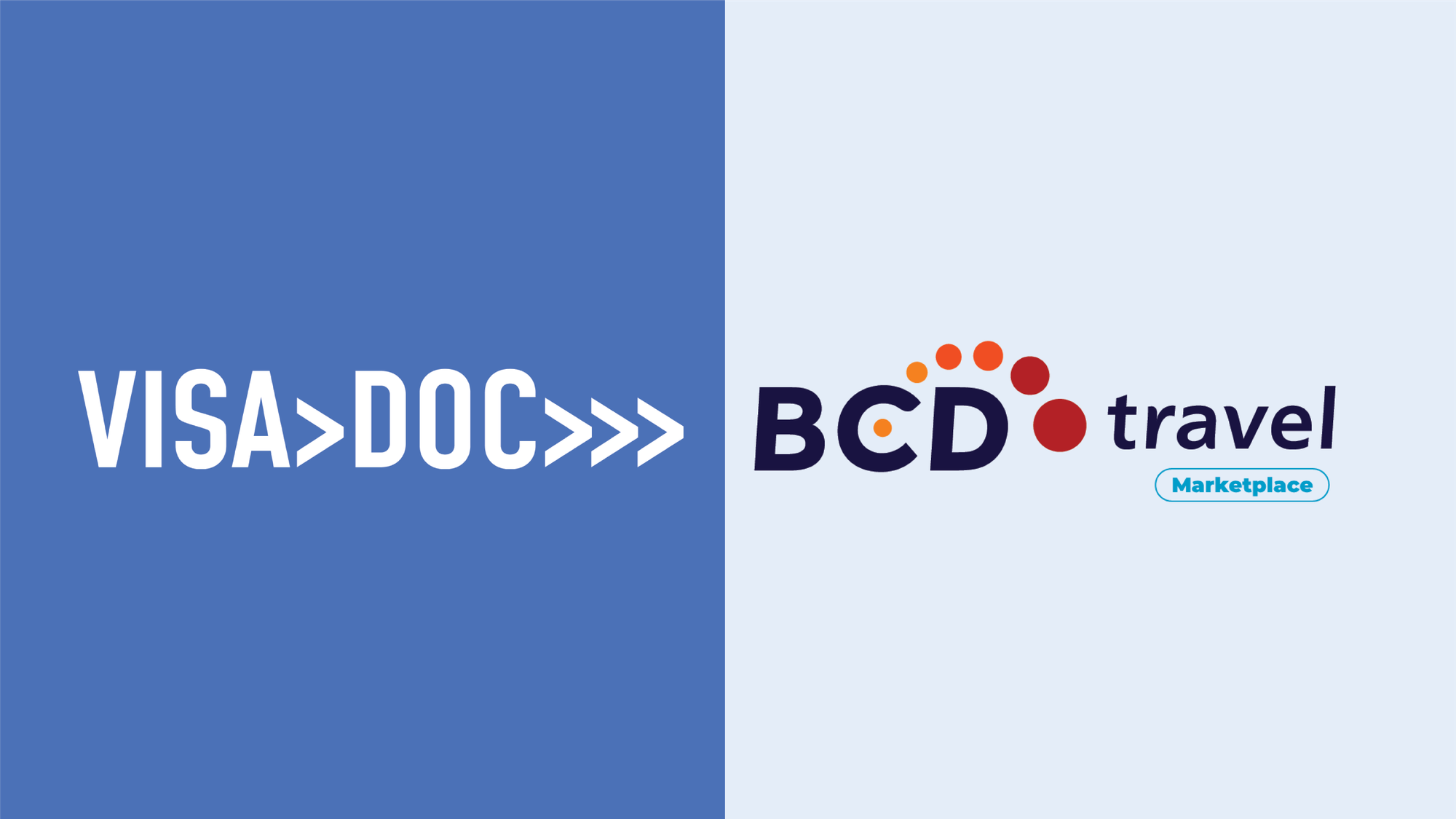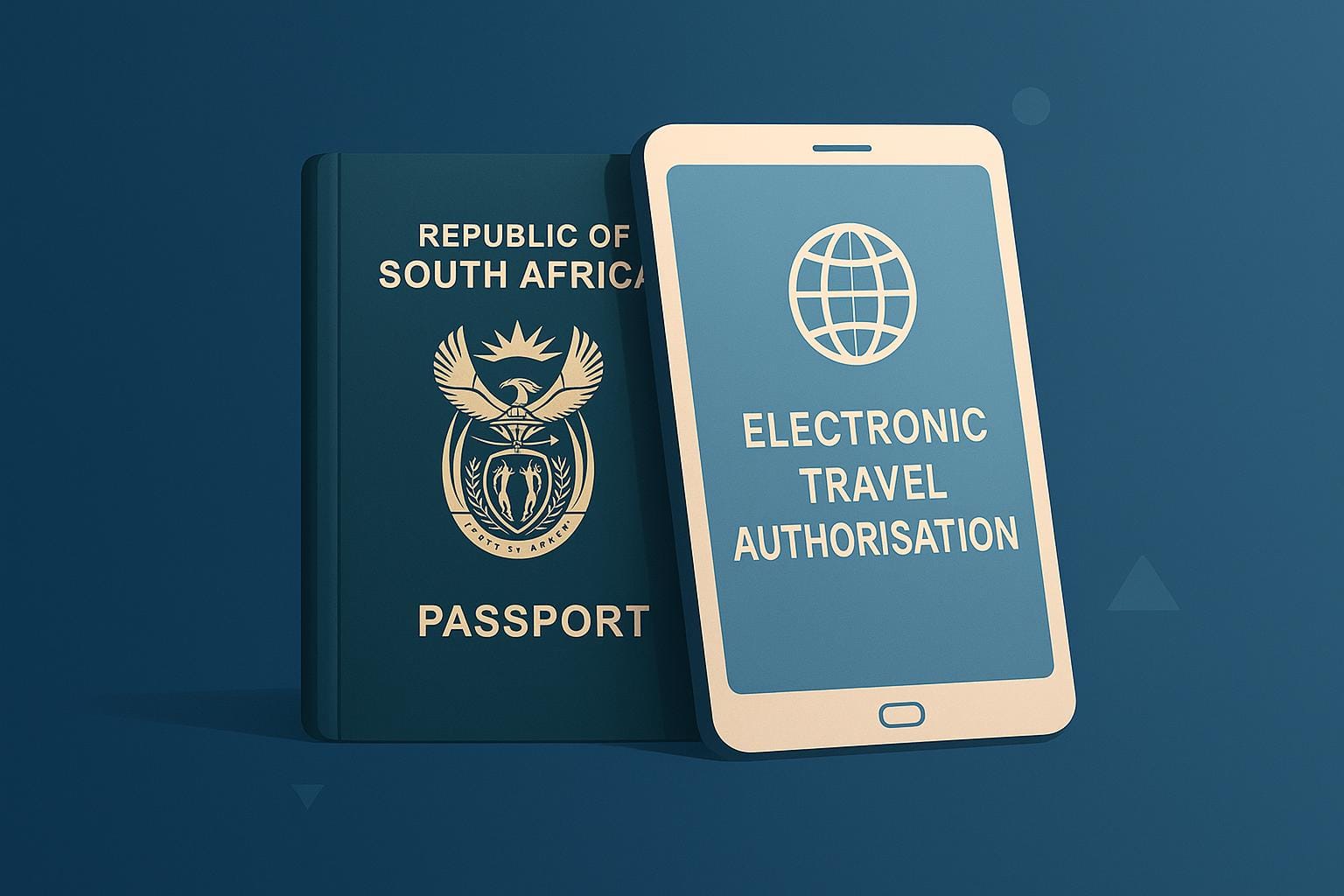Global Business Visa & Entry Policy Changes - May 2025
Get a comprehensive overview of significant changes to business visa policies and entry procedures that occurred globally in May 2025.
I. Europe Region Updates
A. United Kingdom (Europe)

1. Policy Change: Proposed Doubling of Standard Settlement Path (Indefinite Leave to Remain - ILR)
- Summary: The UK government's May 2025 White Paper proposed increasing the standard qualifying period for Indefinite Leave to Remain (ILR) from 5 years to 10 years for most points-based visa holders, including the Skilled Worker route.
- Official Source(s): UK Government - GOV.UK: "Restoring control over the immigration system: white paper" (Published 12 May 2025) - https://www.gov.uk/government/publications/restoring-control-over-the-immigration-system-white-paper
- Example Case Scenario: A software engineer sponsored on a Skilled Worker visa, initially planning to apply for ILR after 5 years, would now potentially have to wait 10 years, requiring at least one further visa renewal and associated costs for themselves and their employer.
- Stated Reason for Change: Part of a broader strategy to reduce net migration, ensure migrants contribute for longer before settlement, and potentially encourage a more temporary approach to skilled work migration for some.
- Consequences: Significantly increased long-term costs for employers (visa renewals, Immigration Skills Charge for longer periods). Greater uncertainty for sponsored workers regarding their long-term future in the UK. May make the UK less attractive for global talent seeking quicker permanent settlement.
- Importance for Business Travelers (Long-Term Assignees): Those on long-term assignments with an eye on settlement will face a much longer, more expensive, and uncertain path. Personal and family planning will be significantly impacted.
- Importance for Business Travel Managers: Need to factor in significantly higher long-term costs for sponsoring foreign nationals. Talent retention strategies may need adjustment, and communication with assignees about these proposed changes is crucial. Budgeting for international assignments will be heavily impacted.
2. Policy Change: Proposed Hike in Immigration Skills Charge (ISC)
- Summary: The White Paper proposed a 32% increase in the Immigration Skills Charge (ISC), which employers pay for each sponsored foreign worker.
- Official Source(s): UK Government - GOV.UK: "Restoring control over the immigration system: white paper" (Published 12 May 2025) - https://www.gov.uk/government/publications/restoring-control-over-the-immigration-system-white-paper
- Example Case Scenario: A company sponsoring a marketing manager for a 3-year visa would see the ISC component of their sponsorship costs rise by 32%, directly increasing the upfront expense of the hire.
- Stated Reason for Change: To generate more funding for domestic skills training and apprenticeships, encouraging employers to invest in the resident workforce.
- Consequences: Direct increase in the cost of sponsoring international talent. May disproportionately affect SMEs with tighter budgets. Could influence hiring decisions, potentially favoring domestic candidates if skills are comparable.
- Importance for Business Travelers (Sponsored Workers): While an employer cost, it could indirectly affect the willingness of companies to sponsor, especially for roles where budgets are tight.
- Importance for Business Travel Managers: Immediate impact on recruitment budgets for international hires. Cost-benefit analyses for sponsoring foreign nationals will need to be updated. Explore all avenues for domestic recruitment and training.
3. Policy Change: Proposed Overhaul of the Skilled Worker Visa Journey
- Summary: The White Paper outlined proposals to make the core Skilled Worker visa route more restrictive, including raising the minimum skill threshold from RQF Level 3 to RQF Level 6 (degree level), increasing salary thresholds, abolishing the Shortage Occupation List (SOL) discount, and requiring employers to prove investment in domestic training. A new, highly controlled temporary route for medium-skilled roles (not leading to settlement) was also proposed.
- Official Source(s): UK Government - GOV.UK: "Restoring control over the immigration system: white paper" (Published 12 May 2025) - https://www.gov.uk/government/publications/restoring-control-over-the-immigration-system-white-paper
- Example Case Scenario: A hospitality business looking to sponsor an experienced chef (previously eligible under RQF Level 3 and potentially the SOL) might find the role no longer meets the RQF Level 6 skill threshold or the increased salary requirements for the standard Skilled Worker route, forcing them to consider the more restrictive temporary route if available for that role.
- Stated Reason for Change: To prioritize highly skilled migrants, reduce reliance on foreign labor for roles that could be filled domestically, and ensure the immigration system supports higher wages and productivity.
- Consequences: Reduced eligibility for many roles previously fillable through the Skilled Worker route. Increased complexity and administrative burden for employers. Potential labor shortages in sectors reliant on skills below RQF Level 6 if the temporary route is insufficient.
- Importance for Business Travelers (Potential Applicants): Significantly narrows the range of jobs eligible for long-term sponsored work visas leading to settlement. Individuals in roles below degree-level skill may find UK work options severely limited.
- Importance for Business Travel Managers: Radical shift in recruitment strategy needed. Workforce planning must account for reduced access to international talent for many roles. Urgent review of current and future staffing needs against the proposed new criteria. Advocacy for sector-specific needs may be required.
B. Spain (Europe)

1. Policy Change: Reforms to Simplify Integration and Attract Talent (Royal Decree 1155/2024)
- Summary: Effective May 20, 2025, Spain enacted reforms to ease integration pathways, notably reducing the 'arraigo social' (social roots) residency requirement from 3 to 2 years for undocumented residents who can prove integration, allowing university students to work up to 30 hours/week, and raising the age limit for dependent children in family reunification to 26.
- Official Source(s): Boletín Oficial del Estado (BOE): "Real Decreto 1155/2024, de 19 de noviembre, por el que se aprueba el Reglamento de desarrollo de la Ley Orgánica 4/2000..." (BOE-A-2024-24099) - https://www.boe.es/buscar/act.php?id=BOE-A-2024-24099
- Example Case Scenario: A non-EU university student in Spain can now legally work part-time for a Spanish company for up to 30 hours a week without needing a separate work permit, gaining valuable experience and income.
- Stated Reason for Change: To address labor shortages, facilitate the integration of immigrants already in Spain, and make Spain more attractive for international students and families.
- Consequences: Easier pathway to regularisation for some undocumented individuals. Increased labor pool access for companies from international students. More favorable conditions for family reunification.
- Importance for Business Travelers/Assignees: Students on assignment or whose children are studying in Spain benefit from clearer work rights and family inclusion. Companies may find it easier to hire international student talent part-time.
- Importance for Business Travel Managers: Awareness of these facilitated pathways can help in advising employees and their families. Potential for recruiting from the international student pool for internships or part-time roles.
2. Policy Change: Abolition of the "Golden Visa" Program (Real Estate Investment Route)
- Summary: Spain abolished its "Golden Visa" program, which granted residency for significant real estate investments (typically €500,000). Applications under this route ended on April 3, 2025.
- Official Source(s): Boletín Oficial del Estado (BOE): "Ley Orgánica 1/2025, de 2 de enero, por la que se modifica la Ley 14/2013..." (BOE-A-2025-51, ending the program) - https://www.boe.es/buscar/act.php?id=BOE-A-2025-51
- Example Case Scenario: A high-net-worth individual from a non-EU country planning to gain Spanish residency by purchasing a luxury property for €600,000 can no longer use this specific investment pathway.
- Stated Reason for Change: To curb real estate speculation, particularly in high-demand urban areas, and to prioritize housing as a social right rather than an investment commodity.
- Consequences: Removal of a popular route for investment-based residency. Investors seeking Spanish residency must now explore alternative visa categories (e.g., non-lucrative visa, entrepreneur visa).
- Importance for Business Travelers (Investors/High-Net-Worth): This direct route to residency through property investment is closed. Alternative immigration strategies are now required.
- Importance for Business Travel Managers/Relocation Services: Advising clients on Spanish residency options must now exclude this pathway. Focus shifts to other available investment or skilled professional visas.
C. France (Europe)

1. Policy Change: New Shortage Occupation List and Waived Labor Market Test
- Summary: France released an updated national Shortage Occupation List on May 21, 2025. For roles on this list, employers are exempt from the standard labor market test (i.e., no need to prove no suitable local candidate is available).
- Official Source(s): Legifrance - Journal Officiel: "Arrêté du 21 mai 2025 fixant la liste des métiers et zones géographiques caractérisés par des difficultés de recrutement..." - https://www.legifrance.gouv.fr/jorf/id/JORFTEXT000050643488
- Example Case Scenario: A French construction company urgently needing a qualified welder (an occupation now on the shortage list) can directly recruit a non-EU national without first advertising the job locally for an extended period.
- Stated Reason for Change: To address critical labor shortages in specific sectors and streamline the hiring process for in-demand roles.
- Consequences: Faster and simpler recruitment process for listed occupations. Increased ability for employers to fill urgent vacancies with international talent.
- Importance for Business Travelers (Job Seekers in Listed Roles): Increased opportunities and potentially quicker visa processing if their profession is on the shortage list.
- Importance for Business Travel Managers: Significant administrative relief for recruiting in listed sectors. Need to stay updated on the specific occupations included in the list, as it can be regional.
2. Policy Change: Relaxed EU Blue Card / Talent Passport Rules
- Summary: Effective May 2, 2025, France relaxed conditions for its "Talent Passport – EU Blue Card." Key changes include reducing the minimum employment contract duration from 12 to 6 months and, for select occupations (to be detailed in a future decree), allowing 3 years of relevant professional experience (gained in the last 7 years) to substitute for a higher education degree.
- Official Source(s):
- Legifrance - Journal Officiel (Transposition Ordinance): "Ordonnance n° 2024-333 du 10 avril 2024 portant transposition de la directive (UE) 2021/1883..." - https://www.legifrance.gouv.fr/jorf/id/JORFTEXT000049400725
- Service-Public.fr (Official Information Portal, updated May 2, 2025): "Talent passport - European Blue Card (EU Blue Card)" - https://www.service-public.fr/particuliers/vosdroits/F16158?lang=en
- Example Case Scenario: An experienced IT project manager from outside the EU with 5 years of experience but without a formal university degree might now qualify for a Talent Passport/EU Blue Card if "IT project manager" is included in the forthcoming list of "select occupations" allowing experience-based qualification.
- Stated Reason for Change: To enhance France's attractiveness for highly skilled global professionals and align with updated EU directives aimed at facilitating skilled migration.
- Consequences: Broader pool of eligible candidates for the EU Blue Card, especially benefiting experienced professionals without traditional academic qualifications in certain fields. Greater flexibility for shorter high-skilled assignments.
- Importance for Business Travelers (Highly Skilled Professionals): New potential pathways to work in France, particularly for those with strong vocational experience in in-demand sectors, even without a degree.
- Importance for Business Travel Managers: Opens up new talent sourcing possibilities. Must monitor for the release of the specific decree detailing which occupations qualify for the experience-based pathway. Offers more options for structuring short-term expert assignments.
3. Policy Change: New Mandatory Online Visa Appointment System ("Demarches Simplifiées")
- Summary: France implemented a new mandatory online system, "Demarches Simplifiées," for booking all types of visa appointments (Schengen short-stay and national long-stay).
- Official Source(s): Official France-Visas website (https://france-visas.gouv.fr/), which guides applicants to the relevant appointment platform (often demarches-simplifiees.fr as implemented by consulates, e.g., French Embassy in Cyprus: https://cy.ambafrance.org/Nouvelles-modalites-de-demande-de-prise-de-rendez-vous-au-service-des-visas.
- Example Case Scenario: A business traveler needing a Schengen visa to attend a conference in Paris must now navigate the multi-step "Visa Wizard" on France-Visas and then use the "Demarches Simplifiées" platform (if directed there by their specific consulate) to secure an appointment.
- Stated Reason for Change: To centralize, standardize, and improve the efficiency and transparency of the visa appointment process.
- Consequences: Requires all applicants to adapt to a new online platform. May lead to initial processing adjustments or learning curves for users. Aims for greater consistency in appointment availability.
- Importance for Business Travelers: A new, unavoidable step in the visa application process. Familiarity with the platform is required.
- Importance for Business Travel Managers: Ensure all visa application guidance and support for travelers to France is updated to reflect this new mandatory online system. Monitor for any reported system issues or delays during the initial rollout.
D. Poland (Europe)

1. Policy Change: Overhaul of Work Authorization System (Digitalization, No LMT, Stricter Compliance)
- Summary: Effective June 1, 2025, Poland implemented a major reform of its work authorization system. Key changes include mandatory electronic-only applications, elimination of the Labor Market Test (LMT) for most roles, the potential for local authorities to create "protected jobs" lists restricting foreign hires, and significantly stricter employer compliance obligations (e.g., submitting signed, bilingual employment contracts; tighter notification deadlines for work status changes) with increased penalties.
- Official Source(s): Amendments to key Polish legislation published in Dziennik Ustaw (Journal of Laws) around Spring 2025, such as:
- Act amending employment laws (Dz.U. 2025 poz. 589): https://isap.sejm.gov.pl/isap.nsf/DocDetails.xsp?id=WDU20250000589
- Consolidated text of the Act on Foreigners (Dz.U. 2025 poz. 590), incorporating relevant amendments: https://isap.sejm.gov.pl/isap.nsf/DocDetails.xsp?id=WDU20250000590
- (Specific comprehensive acts detailing all changes would be found on isap.sejm.gov.pl.)
- Example Case Scenario: A Polish manufacturing company hiring a non-EU engineer no longer needs to conduct an LMT, speeding up the initial application. However, they must now prepare a Polish-English employment contract, have it signed before work starts, and submit it electronically to authorities within 7 days of the worker commencing employment, facing hefty fines if they fail to comply.
- Stated Reason for Change: To modernize and streamline the application process through digitalization, make hiring faster by removing LMTs, while also increasing oversight and ensuring foreign employment is well-regulated and doesn't undercut the local market.
- Consequences: Potentially faster initial work permit processing for employers. Significant increase in administrative and compliance burdens for employers. New uncertainties regarding "protected jobs" lists. Higher financial risks due to increased penalties.
- Importance for Business Travelers (Foreign Workers): While the process for their employer might be faster initially, the terms of their employment will be more scrutinized (e.g., bilingual contract). They should ensure they understand their rights and the contract terms.
- Importance for Business Travel Managers: A double-edged sword. Streamlined initial applications but massively increased compliance workload and risk. Requires investment in systems and knowledge to manage the new obligations and avoid severe penalties. Critical to monitor for "protected jobs" lists.
E. Portugal (Europe)

1. Policy Change: New Border Control Systems and Increased Scrutiny
- Summary: Around May 20, 2025, Portugal rolled out new border control systems (PASSE+, VIS4, Borders Portal) at air and sea ports, including fingerprinting for third-country nationals holding short-stay visas. This aligns with upcoming EU-wide systems (EES, ETIAS).
- Official Source(s): AIMA - Agência para a Integração Migrações e Asilo: "Modernização dos Sistemas de Controlo de Fronteira" (Published May 20, 2025) - https://www.aima.gov.pt/pt/noticias/modernizacao-sistemas-controlo-fronteira-maio2025
- Example Case Scenario: A business traveler from a non-EU country arriving in Lisbon on a Schengen short-stay visa will now likely have their fingerprints scanned at immigration as part of the entry process and may experience more thorough questioning.
- Stated Reason for Change: To enhance border security, increase operational efficiency, and ensure compatibility with broader EU border management and information systems.
- Consequences: Potential for increased scrutiny and initial delays at border crossings during the system's bedding-in period. New biometric data collection for many travelers.
- Importance for Business Travelers: Be prepared for fingerprinting and potentially longer processing times at Portuguese borders. Ensure all travel documents are in order and readily accessible.
- Importance for Business Travel Managers: Advise travelers of the new procedures and potential for delays. Factor in slightly longer transit times through Portuguese airports for scheduling purposes, especially during the initial rollout.
2. Policy Change: AIMA's Stricter Application Policy (Rejection of Incomplete Applications)
- Summary: Effective April 28, 2025, Portugal's Agency for Integration, Migration and Asylum (AIMA) implemented a policy to automatically reject any new residence permit applications (initial or renewals) that are not submitted with 100% of the required documentation.
- Official Source(s): AIMA - Agência para a Integração Migrações e Asilo: "Otimização da Análise de Pedidos de Residência" (Published April 28, 2025) - https://www.aima.gov.pt/pt/noticias/otimizacao-analise-pedidos-residencia-abril2025
- Example Case Scenario: An expatriate applying to renew their Portuguese residence permit submits their application but forgets a recent proof of address. Under the new AIMA policy, the entire application is likely to be rejected immediately, requiring a full resubmission.
- Stated Reason for Change: To improve processing efficiency, reduce backlogs by ensuring applications are decision-ready upon submission, and shift the onus of completeness onto applicants.
- Consequences: No leeway for missing documents. Applications must be perfectly compiled. Risk of significant delays if rejected and resubmitted.
- Importance for Business Travelers (Long-Term Residents/Assignees): Extreme diligence required when preparing residence permit applications. Double-check all requirements to avoid summary rejection and lengthy delays.
- Importance for Business Travel Managers/Relocation Services: Implement rigorous pre-submission checks for all Portuguese residence permit applications. Provide clear checklists and support to ensure 100% completeness. Delays due to rejection can severely impact assignments.
II. Asia-Pacific (APAC) Region Updates
A. China (APAC)

1. Policy Change: Expansion of Visa-Waiver Program (Latin America & GCC)
- Summary: China announced trial visa-free policies for ordinary passport holders from five Latin American countries (Argentina, Brazil, Chile, Peru, Uruguay - effective June 1, 2025, to May 31, 2026) and four additional GCC countries (Bahrain, Kuwait, Oman, Saudi Arabia - effective June 9, 2025, to June 8, 2026). Eligible citizens can enter visa-free for up to 30 days for business, tourism, family visits, cultural exchange, or transit.
- Official Source(s):
- Chinese Government Portal (for Latin America): "China expands visa-free access to 5 Latin American countries" (Effective June 1, 2025) - https://english.www.gov.cn/news/202506/02/content_WS683cebdac6d0868f4e8f3071.html
- (Announcements for GCC waivers are typically made by the Ministry of Foreign Affairs Spokesperson and reported by official state media.)
- Example Case Scenario: A business development manager from Brazil can travel to Shanghai for a 10-day trade fair in June 2025 without needing to apply for a Chinese visa beforehand.
- Stated Reason for Change: To facilitate cross-border travel, boost commercial and cultural exchanges, and demonstrate China's commitment to opening up.
- Consequences: Significantly simplified travel to China for eligible nationals. Potential increase in business and tourist arrivals from these regions.
- Importance for Business Travelers (from eligible countries): Reduced administrative burden and cost for short trips to China. Faster mobilization for urgent business needs. Must adhere to the 30-day limit and permitted activities, and still complete police registration within 24 hours of arrival.
- Importance for Business Travel Managers: Identify eligible travelers within the organization. Update travel policies and advice for China-bound travel from these regions. Remind travelers of the 30-day limit and police registration.
B. Thailand (APAC)

1. Policy Change: Reinstatement of Proof of Sufficient Funds for Entry
- Summary: Effective May 2025, Thailand reinstated the requirement for all tourist visa applicants and travelers entering under visa-free arrangements or Visa on Arrival (VoA) to demonstrate access to a minimum of THB 20,000 (approx. USD 550) per individual.
- Official Source(s): Ministry of Foreign Affairs of the Kingdom of Thailand: "Reinstatement of Financial Requirement for Entry into Thailand" (Effective May 1, 2025) - https://www.mfa.go.th/en/content/financial-requirement-entry-thailand-may2025
- Example Case Scenario: A business traveler from a visa-exempt country arriving in Bangkok for a one-week conference may be asked by immigration to show a recent bank statement proving they have at least THB 20,000.
- Stated Reason for Change: To ensure visitors are financially self-sufficient during their stay and to maintain a well-regulated tourism sector.
- Consequences: An additional documentation requirement for many travelers. Potential for refusal of entry if proof cannot be provided.
- Importance for Business Travelers: Must carry acceptable proof of funds (e.g., recent bank statement). Even short business trips under tourist or visa-exempt status are subject to this.
- Importance for Business Travel Managers: Advise all Thailand-bound travelers, regardless of visa status, to prepare and carry proof of sufficient funds. Update pre-travel checklists.
2. Policy Change: Launch of Mandatory Thailand Digital Arrival Card (TDAC)
- Summary: Effective May 1, 2025, Thailand launched the mandatory TDAC system, replacing the paper "TM.6" arrival/departure card. All foreign travelers must complete the TDAC online at least 3 days (or 72 hours) before entering Thailand.
- Official Source(s):
- Immigration Bureau of Thailand (News): "Launch of Thailand Digital Arrival Card (TDAC)" - https://www.immigration.go.th/en/news-events/tdac-launch-may2025.html
- Official TDAC Portal: https://www.thaidigitalarrivalcard.go.th
- Example Case Scenario: A marketing executive traveling to Phuket for a business retreat must complete the TDAC online form with their personal, travel, and accommodation details a few days before their flight.
- Stated Reason for Change: To digitize and streamline the immigration entry process, aiming for faster clearance times.
- Consequences: A new mandatory pre-travel online registration step. Failure to complete could lead to entry issues.
- Importance for Business Travelers: A new, non-negotiable step. Must complete online before travel and ideally carry confirmation.
- Importance for Business Travel Managers: Integrate TDAC completion into pre-trip checklists. Ensure travelers are aware of this requirement and how to complete the form.
C. Philippines (APAC)

1. Policy Change: New Visa-Free Entry Options for Indian Nationals
- Summary: Announced May 27, 2025 (effective May 2025), Indian nationals can enter the Philippines visa-free for tourism for up to 14 days. Additionally, Indian citizens holding a valid visa or permanent residency from Australia, Japan, the USA, Canada, Schengen countries, Singapore, or the UK (AJACSSUK countries) can enter visa-free for up to 30 days for tourism purposes.
- Official Source(s):
- Bureau of Immigration Philippines (Official Announcement PDF): "Visa-Free Entry for Indian Nationals" - https://immigration.gov.ph/images/Announcements/2025_May_VisaFree_India.pdf
- Department of Foreign Affairs, Philippines (Statement): "Statement on Visa Facilitation for Indian Nationals" - https://dfa.gov.ph/newsroom/dfa-releases/35012-statement-visa-facilitation-indian-nationals-may2025
- Example Case Scenario: An Indian tech consultant holding a valid US B1/B2 visa can travel to Manila for a 20-day project meeting without applying for a Philippine visa beforehand. An Indian colleague without such a visa could visit for a 10-day meeting, also visa-free.
- Stated Reason for Change: To boost tourism from India and strengthen bilateral ties.
- Consequences: Significantly simplified short-term travel to the Philippines for eligible Indian nationals.
- Importance for Business Travelers (from India): Reduced administrative burden and cost for short business trips. Faster mobilization. Must meet specific eligibility and carry supporting documents (passport validity, return ticket, funds, accommodation).
- Importance for Business Travel Managers: Identify eligible Indian travelers. Update travel policies and advice. Significant facilitation for India-Philippines business travel.
III. Africa Region Updates
A. Nigeria (Africa)

1. Policy Change: Launch of e-Visa System & Discontinuation of Visa-on-Arrival (VoA)
- Summary: Effective May 1, 2025, Nigeria launched a comprehensive e-Visa system (https://evisa.immigration.gov.ng) and discontinued its Visa-on-Arrival (VoA) program. All short-term visa applicants must now apply online.
- Official Source(s): Nigeria Immigration Service (NIS Announcement): "Launch of New e-Visa System and Digital Entry/Exit Cards" - https://immigration.gov.ng/notice-launch-of-new-e-visa-system-and-digital-entry-exit-cards-may-2025/ (This notice also provides the e-Visa portal: https://evisa.immigration.gov.ng)
- Example Case Scenario: An oil and gas executive needing to travel to Lagos for urgent negotiations can no longer get a visa upon arrival. They must now apply for an e-Visa online through the portal at least 48 hours before their intended travel.
- Stated Reason for Change: To modernize immigration controls, enhance national security, simplify application processes, and improve efficiency.
- Consequences: End of last-minute travel relying on VoA. All visa-required travelers must engage with the online system pre-travel.
- Importance for Business Travelers: Pre-travel visa planning is now essential. Familiarity with the e-Visa portal and its requirements is crucial.
- Importance for Business Travel Managers: Update all travel policies for Nigeria. Implement procedures for timely e-Visa applications. Ensure travelers understand that VoA is no longer an option.
2. Policy Change: Automated Digital Entry/Exit Card System in Nigeria
- Summary: Effective May 1, 2025, Nigeria replaced paper landing/embarkation cards with an automated online entry/exit card system. All inbound international passengers (except Nigerian citizens) must complete an electronic landing card online up to 72 hours before travel.
- Official Source(s): Nigeria Immigration Service (NIS Announcement): "Launch of New e-Visa System and Digital Entry/Exit Cards" - https://immigration.gov.ng/notice-launch-of-new-e-visa-system-and-digital-entry-exit-cards-may-2025/ (This notice also provides the digital landing card portal: https://enter.immigration.gov.ng)
- Example Case Scenario: Before boarding a flight to Abuja, a business consultant must go online and fill out their arrival information and will receive a QR code or similar for immigration clearance upon landing.
- Stated Reason for Change: To streamline airport formalities, improve data collection, and enhance security.
- Consequences: A new mandatory pre-travel online step for all non-Nigerian inbound travelers.
- Importance for Business Travelers: Must remember to complete this online form before departure to Nigeria.
- Importance for Business Travel Managers: Incorporate this digital entry card completion into pre-travel checklists for Nigeria. Airlines will likely verify completion.
B. Mozambique (Africa)

1. Policy Change: Electronic Travel Authorization (ETA/eVisa) Introduced and Temporarily Suspended
- Summary: In early May 2025, Mozambique introduced a mandatory ETA via www.evisa.gov.mz for visitors from 29 visa-exempt countries. However, this was suspended around May 16-19, 2025, due to technical issues with the online system.
- Official Source(s): Serviço Nacional de Migração (SENAMI - Mozambique National Migration Service): "Comunicado: Suspensão Temporária do Registo Obrigatório de Autorização Eletrónica de Viagem (ETA)" (Suspension from May 19, 2025) - https://www.senami.gov.mz/comunicados/suspensao-temporaria-eta-maio2025 (The eVisa portal mentioned was evisa.gov.mz)
- Example Case Scenario: A project manager from the UK, planning a trip to Maputo in early May, would have needed to apply for an ETA online. If traveling in late May, after the suspension, this pre-registration was not required (though they should check for reinstatement).
- Stated Reason for Change (for ETA): To better manage travel flows and enhance border security. (Reason for suspension: technical difficulties).
- Consequences: Short-term uncertainty for travelers from affected countries. The requirement is expected to be reinstated once issues are fixed.
- Importance for Business Travelers (from affected countries): Must stay vigilant and check official channels for the latest status of the ETA requirement before traveling to Mozambique.
- Importance for Business Travel Managers: Monitor official updates closely. Advise travelers from the 29 countries to verify entry requirements immediately before departure. Prepare for eventual reinstatement.
IV. Americas & Caribbean Region Updates
A. United States (Americas)

1. Policy Change: H-2B Supplemental Visa Cap Update (FY 2025)
- Summary: USCIS announced on April 18, 2025, that it had reached the supplemental cap for H-2B non-agricultural temporary worker visas for returning workers for the early second half of FY 2025 (start dates April 1 - May 14, 2025).
- Official Source(s): U.S. Citizenship and Immigration Services (USCIS): "H-2B Supplemental Visa Cap Reached for Early Second Half of FY 2025 for Returning Workers" - https://www.uscis.gov/newsroom/alerts/h-2b-supplemental-visa-cap-reached-for-early-second-half-of-fy-2025-for-returning-workers
- Example Case Scenario: A U.S. landscaping company that relies on returning H-2B workers for the spring season would have needed to file its petitions very early to secure visas under this supplemental cap.
- Stated Reason for Change (for cap management): To manage the numerically limited H-2B visa program and address labor shortages in seasonal industries.
- Consequences: High demand for limited visas. Businesses not acting quickly may miss out on needed temporary workers.
- Importance for Business Travelers (H-2B Workers/Employers): Illustrates the competitive and time-sensitive nature of certain U.S. work visa categories.
- Importance for Business Travel Managers (in relevant U.S. industries): Emphasizes the need for very early planning and application for seasonal work visas.
2. Policy Change: New U.S. Visa Restriction Policy (Targeting Censorship)
- Summary: On May 28/29, 2025, the U.S. Secretary of State announced a new visa restriction policy targeting foreign nationals deemed responsible for censoring protected expression in the U.S., under Section 212(a)(3)(C) of the Immigration and Nationality Act.
- Official Source(s): U.S. Department of State: "Announcing a New Visa Restriction Policy to Address Transnational Repression" (May 28, 2025) - https://www.state.gov/announcing-a-new-visa-restriction-policy-to-address-transnational-repression-may282025/
- Example Case Scenario: A foreign government official found to be directly involved in ordering the suppression of U.S.-based journalists critical of their regime could be denied a U.S. visa under this new policy.
- Stated Reason for Change: To counter foreign government efforts to suppress free speech and protect U.S. persons from transnational repression.
- Consequences: Potential visa denial or revocation for individuals identified under this policy.
- Importance for Business Travelers: Unlikely to affect most business travelers unless they are associated with entities or activities targeted by this specific policy. However, it signals a willingness to use visa mechanisms for broader foreign policy objectives.
- Importance for Business Travel Managers: Generally low direct impact on typical corporate travel, but good to be aware of as part of the broader U.S. visa policy landscape.
B. St. Kitts & Nevis (Caribbean)

1. Policy Change: Launch of Mandatory Electronic Travel Authorization (ETA) System
- Summary: St. Kitts & Nevis launched a mandatory ETA system on May 26, 2025. All visitors (unless specifically exempted) must apply online via www.knatravelform.kn or a mobile app and receive approval before travel. A fee applies (USD 8.50 discounted until Sept 1, 2025, then USD 17).
- Official Source(s):
- Office of the Prime Minister, St. Kitts & Nevis: "St. Kitts and Nevis Launches Mandatory Electronic Travel Authorization (ETA) System" - https://www.opm.gov.kn/st-kitts-and-nevis-launches-mandatory-electronic-travel-authorization-eta-system-may2025/
- St. Kitts Tourism Authority: "New ETA System for Entry to St. Kitts & Nevis" - https://www.stkittstourism.kn/travel-advisory/eta-system-launch-may2025
- Official ETA Portal: www.knatravelform.kn
- Example Case Scenario: An executive planning to attend a financial conference in St. Kitts must now complete the online ETA application and pay the fee before their flight, regardless of their nationality.
- Stated Reason for Change: To modernize border management, enhance national security through pre-arrival screening, and streamline the entry process.
- Consequences: A new mandatory pre-travel step for nearly all visitors. Failure to obtain an ETA will likely result in denied boarding or entry.
- Importance for Business Travelers: An essential pre-trip requirement. The application is online and relatively straightforward, but cannot be overlooked.
- Importance for Business Travel Managers: Add St. Kitts & Nevis ETA to all pre-travel checklists. Ensure travelers are aware and complete the application in time. Note the fee.
Conclusion
May 2025 was a dynamic month for global business mobility. The overarching themes include increased digitalization of visa and entry processes (Thailand, Nigeria, St. Kitts & Nevis, France, Poland), a continued focus on attracting specific high-skilled talent while potentially raising barriers for broader migration (UK, France), and growing emphasis on employer compliance (UK, Poland). For businesses and travelers, this necessitates heightened awareness, proactive planning, and meticulous adherence to evolving requirements to ensure smooth and compliant international travel.













